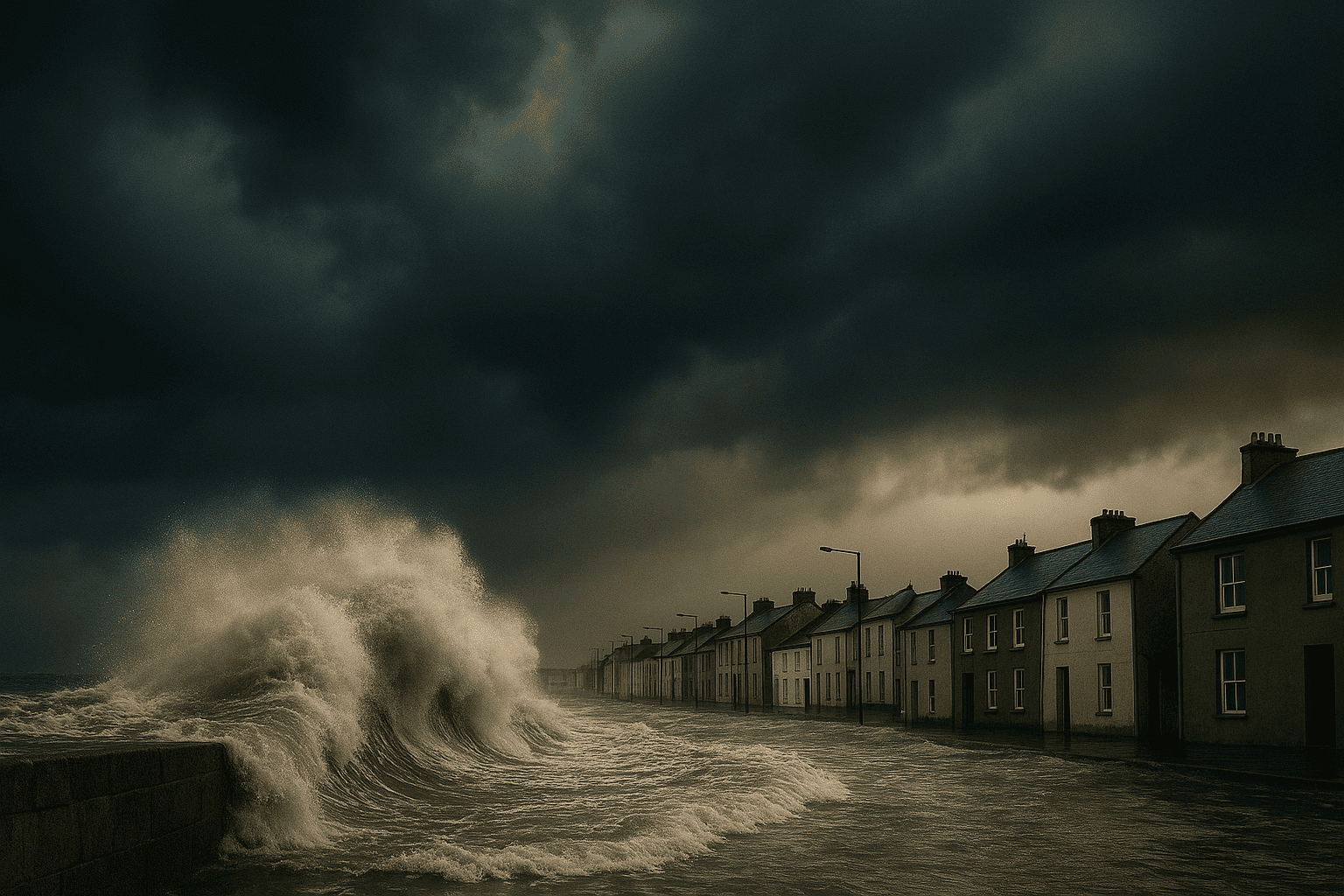
Official reports from Ireland’s environmental authorities show that just over half of the nation’s rivers and lakes are in good ecological condition — a slow decline that mirrors decades of political caution. Agriculture, wastewater, and river modification remain the chief polluters. The science is clear, the response slow. What was once invisible pollution has become visible destruction.
At the same time, a new threat hums quietly behind server walls. The data-centre boom has turned Ireland into one of Europe’s digital backbones — and one of its thirstiest. Cooling systems consume vast amounts of water; energy demand grows faster than renewable supply. Investigations aired in 2025 showed that this expansion, if unchecked, will push Ireland off its 2030 emission path. Three out of four citizens now say they are worried about the environmental cost of these facilities, and almost nine in ten want companies forced to reveal their true water and energy use.
While that debate heats up, another one unfolds more quietly in Brussels. Ireland’s long-standing nitrates exemption, which allows more intensive farming than EU law normally permits, expires at the end of 2025. Negotiations over its renewal for 2026–2029 have begun, and they will decide how much livestock Ireland can support — and how much pollution its rivers must bear. Behind the jargon lies a question of fairness: who pays for cheap food and clean water not being in the same place?
Above these domestic struggles looms Europe’s new Nature Restoration Law, which obliges every member state to restore damaged ecosystems by 2030. Ireland must present its plan by mid-2026, identifying peatlands, coastal meadows, and forests to bring back to life. For the first time, environmental progress will be measured in hectares recovered, not speeches delivered.
The truth is uncomfortable. Ireland built its modern infrastructure for yesterday’s weather. Overhead power lines, ageing substations and single-source grids cannot stand up to the Atlantic’s new intensity. Warnings were issued years ago in national climate reports, yet funding lagged behind rhetoric. The same pattern repeats in agriculture, where short-term economics outweigh long-term hydrology. Pollution is quietly subsidised: profits remain private, the clean-up public.
And still the digital sector expands under permissive planning rules, with no binding requirement for renewable offsets or recycled-water systems. The country risks turning its technological pride into an ecological debt. Across Europe, sympathy for Ireland’s storms rarely turns into action; solidarity seems to end at the shoreline.
The solutions are not mysteries. Power and water must be treated as one organism — resilient, decentralised, storm-rated. Any renewed nitrates exemption should be conditional on real-time monitoring and transparent reporting. New data centres should prove carbon-neutral contracts and closed-loop cooling before a single foundation is poured. The restoration law must be executed by watershed, not by county boundary, and storm-relief funds should compensate those who live on the front line of the Atlantic’s anger.
This cannot wait. The next cyclone will not ask for parliamentary approval. Every year of hesitation costs lives, homes, and herds. Ireland now registers more red-weather alerts and blackout hours than at any time in modern record. Storm Éowyn exposed how a single failure — power — cascades into water, health, and safety. Storm Amy confirmed the pattern. Fate had nothing to do with it. Governance did.
People sometimes ask whether these crises come from incompetence or corruption. The answer is duller and more damning: decades of half-funded infrastructure and delayed maintenance. Others ask who benefits from weak nitrate enforcement while rivers die. The answer is the same few agribusinesses that have mastered the art of exporting profit and importing pollution. Many wonder whether the Nature Restoration Law will become Europe’s bureaucratic wallpaper or a genuine repair manual. It can still be the latter, if backed by measurable targets and political will. And can Ireland survive its own data-centre boom? Only if it learns to count water as carefully as it counts revenue.
We already know the blueprint. Reinforce the grid. Digitise pollution control. Power technology with clean energy. Restore the ecosystems that keep the island alive. None of this requires miracles — just deadlines that mean something.
The next time an Atlantic storm knocks, Ireland should answer not with apologies but with evidence: cables buried, water flowing, homes lit. That is what resilience looks like in a country that refuses to drown twice.
